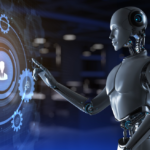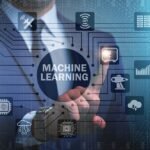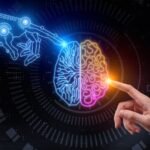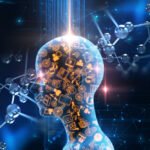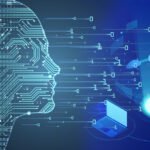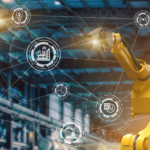AI Trends
/ /
Artificial Intelligence (AI) has rapidly evolved, transforming the way we live, work, and interact with technology. As AI continues to advance, it becomes essential to understand the latest trends that shape its trajectory and influence its applications. In this blog, we will explore the exciting trends in AI, from breakthrough advancements to emerging technologies, and the potential impact they hold for industries and society at large.
- Deep Learning and Neural Networks: Deep learning, a subset of machine learning, has become the driving force behind many AI breakthroughs. Deep neural networks, inspired by the human brain, excel at processing vast amounts of data and extracting meaningful patterns. As research in deep learning progresses, we witness advancements in areas like computer vision, natural language processing, and speech recognition, unlocking new possibilities for automation, personalization, and decision-making.
- Reinforcement Learning and Robotics: Reinforcement learning has gained significant attention as an AI technique that enables agents to learn and make decisions through interactions with their environment. Combined with robotics, reinforcement learning has the potential to revolutionize industries such as manufacturing, healthcare, and logistics. Autonomous robots equipped with reinforcement learning algorithms can adapt to dynamic environments, perform complex tasks, and enhance efficiency and safety in various domains.
- Explainable AI and Ethical Considerations: With the increasing adoption of AI, there is a growing need for transparency and explainability in AI systems. Explainable AI focuses on making AI models and algorithms interpretable, allowing users to understand the reasoning behind their decisions. Ethical considerations, including bias detection and mitigation, fairness, and privacy, are becoming integral to AI development. Ensuring ethical practices in AI technologies is crucial to building trust and minimizing potential risks.
- Edge Computing and AI at the Edge: Edge computing, the paradigm of processing data closer to the source rather than relying solely on the cloud, is gaining momentum in the AI landscape. AI at the edge brings intelligence directly to devices like smartphones, wearables, and IoT devices, enabling real-time decision-making, reduced latency, and improved data privacy. Edge AI empowers industries like healthcare, smart homes, and autonomous vehicles, where low latency and reliable connectivity are crucial.
- Generative AI and Creative Applications: Generative AI techniques, such as generative adversarial networks (GANs) and variational autoencoders (VAEs), have sparked a wave of creativity and innovation. These models can generate realistic images, music, text, and even deepfakes. Generative AI has applications in entertainment, design, virtual reality, and content creation, pushing the boundaries of human creativity and enhancing user experiences.
- AI in Healthcare: AI’s impact on healthcare is rapidly expanding, with applications ranging from disease diagnosis to personalized treatment plans. Machine learning algorithms can analyze vast amounts of patient data, helping doctors make more accurate diagnoses and treatment decisions. AI-powered technologies, such as remote patient monitoring, robotic surgery, and drug discovery, are transforming healthcare delivery and improving patient outcomes.
- Natural Language Processing and Conversational AI: Advancements in natural language processing (NLP) have led to significant progress in conversational AI. Chatbots, virtual assistants, and voice-enabled devices are becoming increasingly sophisticated in understanding and responding to human language. NLP enables applications like language translation, sentiment analysis, and voice interfaces, enhancing customer service, automation, and user engagement.
- AI and Sustainability: The integration of AI with sustainability initiatives is gaining momentum. AI techniques, like predictive analytics and optimization algorithms, can optimize energy consumption, reduce waste, and improve resource management. AI-powered solutions also have the potential to address environmental challenges, such as climate modeling, biodiversity conservation, and disaster management, driving sustainable practices across industries.
Posted in Blogs










